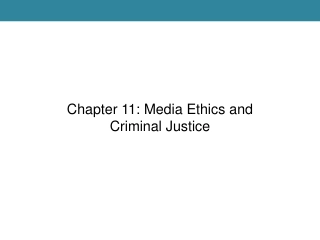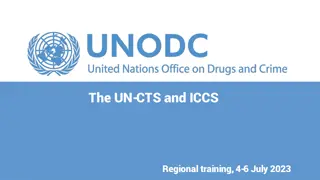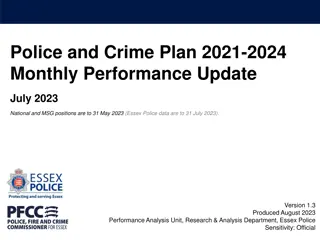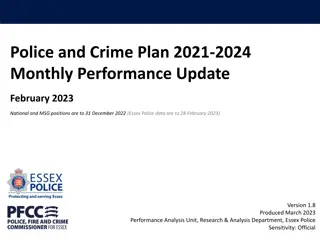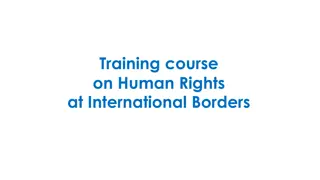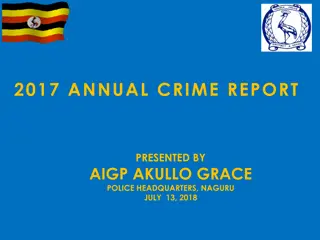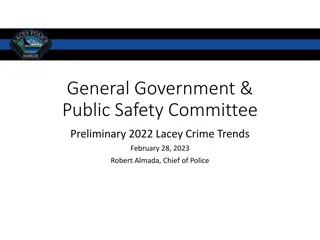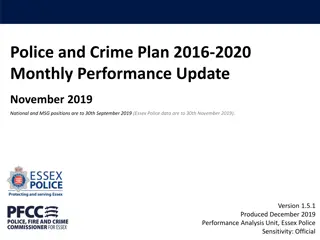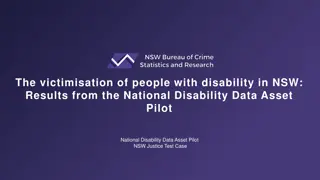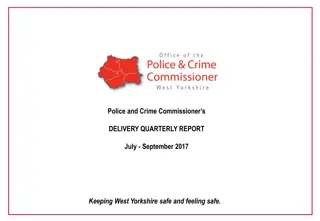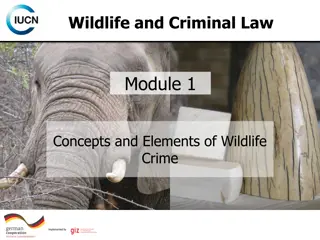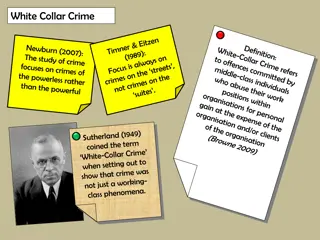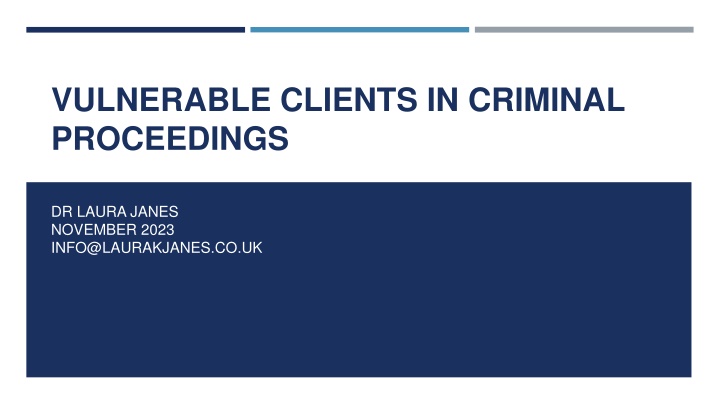
Needs of Vulnerable Clients in Criminal Proceedings
Explore the prevalence and lack of formal mechanisms in criminal proceedings, relevance to substantive law, adaptations to the process, and practical issues for lawyers when dealing with vulnerable clients in the criminal justice system.
Download Presentation

Please find below an Image/Link to download the presentation.
The content on the website is provided AS IS for your information and personal use only. It may not be sold, licensed, or shared on other websites without obtaining consent from the author. If you encounter any issues during the download, it is possible that the publisher has removed the file from their server.
You are allowed to download the files provided on this website for personal or commercial use, subject to the condition that they are used lawfully. All files are the property of their respective owners.
The content on the website is provided AS IS for your information and personal use only. It may not be sold, licensed, or shared on other websites without obtaining consent from the author.
E N D
Presentation Transcript
VULNERABLE CLIENTS IN CRIMINAL PROCEEDINGS DR LAURA JANES NOVEMBER 2023 INFO@LAURAKJANES.CO.UK
Overview 1.How prevalent are needs across the CJS? 2.The lack of formal mechanisms in criminal and quasi criminal proceedings 3.Relevance to substantive law 4.Adaptations to the process 5.Practical issues for lawyers
NEEDS IN THE CJS One in five criminal cases involves a victim, witness or defendant with a mental health condition (CPS research, 2017); 76% of female and 40% of male remand prisoners have a mental health condition, 29% of those serving community sentences have a mental health condition People from minoritized communities are disproportionately represented in the criminal justice system (Lammy 2017); and 40% more likely than white people to access mental health services via a criminal justice pathway (Healthcare Commission Census, 2007). Between April 2014 to March 2016, assessments of young people entering custody showed concerns relating to: self-harm or suicide (31%); physical health (3%); mental health (33%); learning disabilities or difficulties (32%); (MOJ, 2017) Upto 50% of the prison population cannot read well enough to take part in functional skills courses at level 1 or above (HMIP and Ofsted, 2022) See https://www.cps.gov.uk/cps/news/howard-league-penal-reform-parmoor-lecture https://www.gov.uk/government/uploads/system/uploads/attachment_data/file/585991/key-characteristics-of-admissions-april-2014-to-march-2016.pdf https://www.gov.uk/government/publications/prison-education-a-review-of-reading-education-in-prisons/prison-education-a-review-of-reading-education-in-prisons
LACK OF FORMAL MECHANISMS FOR REPRESENTATION No litigation friend possible, except in parole proceedings see EG v Parole Board & ors [2020] EWHC 1457 (Admin) https://www.bailii.org/ew/cases/EWHC/Admin/2020/1457. html Mackenzie friend possible in adjudications only Criminal practitioners expected to muddle through ?
SUBSTANTIVE CRIMINAL LAW AND CAPACITY A person may be found to be unfit to plead if they meet the Pritchard test (1836) 7 C & P 303, 173 ER 135; focused on procedural aspects of the criminal case Law Commission concerns & proposals for reform - 2015. Government response published 1 November 2023 Intent mens rea Age of criminal responsibility 10 years old CPS Code interests of justice Blunt tools for the complexity of forensic realities
Where a client who in civil proceedings would lack capacity, in criminal proceedings the focus is on adaptations and special measures Criminal procedure rules see practice direction 6 VULNERABLE PEOPLE AND WITNESS EVIDENCE : The court is required to take every reasonable step to encourage and facilitate the attendance of witnesses and to facilitate the participation of any person, including the accused. This includes enabling a witness or accused to give their best evidence, and enabling an accused to comprehend the proceedings. The pre-trial and trial process should, so far as necessary, be adapted to meet those ends. Intermediaries, breaks, ground rules hearings etc Advocate s Gateway and the Equal Treatment Bench Book ADAPTATIONS
PRACTICAL ISSUES As with civil, how to you get past the first hurdle of understanding need? Burden remains on representatives to: identify issues, and work out how to meet them Commissioning reports who to instruct, how to secure reports Obtaining background information is key friends, family, statutory services Legal aid, the churn of cases and the haste of the system makes this difficult - practitioners are penalised financially for accommodating need How do you take instructions and earn trust? Ethically Practically

